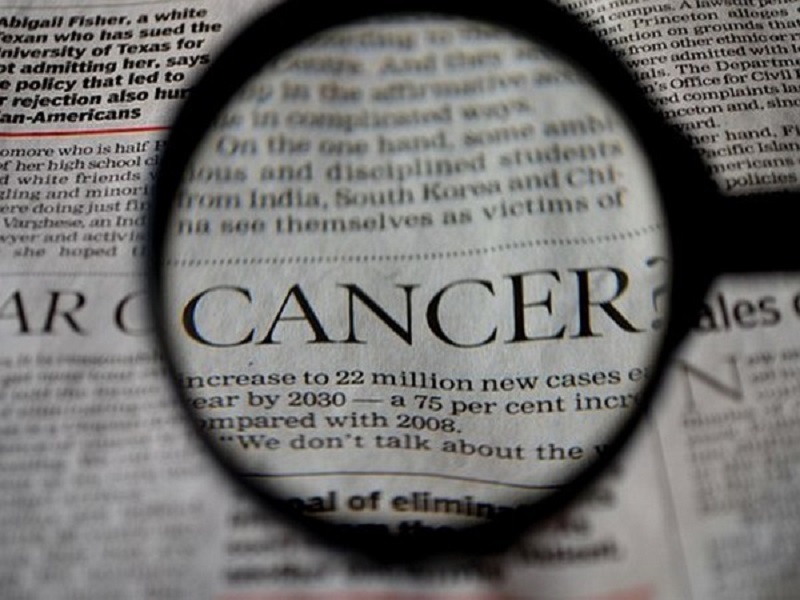

Around a decade ago the first checkpoint inhibitor drugs were developed to treat cancer and studies have been going on to make them more effective. According to a new research, the over-the-counter second-generation antihistamines might be able to improve the outcomes for cancer patients treated with anti-PD-1/PD-L1 therapies for a number of different types of cancer.
The findings of the study were published in the journal ‘Cancer Cell’.
“We believe our findings could have implications for clinical practice if validated in prospective clinical studies,” said senior author Dihua Yu, a professor and chair ad interim of the Department of Molecular and Cellular Oncology at The University of Texas MD Anderson Cancer Center.
“For example, our study suggests that before immunotherapy treatment, testing patients’ plasma histamine level could help doctors decide whether patients may benefit from antihistamine treatment,” Yu added.
The discovery was made after the investigators decided to look at the influence of 40 common medications on the efficacy of checkpoint inhibitors. These included over-the-counter drugs such as antacids and anti-inflammatory and prescription drugs such as antibiotics and steroids. When the researchers reviewed the patients’ electronic health records, they found that taking H1-antihistamines by patients receiving immunotherapy was significantly associated with improved overall survival.
Second-generation H1-antihistamines included cetirizine (Zyrtec), loratadine (Claritin), and, more recently, fexofenadine (Allegra). These drugs, which block metabolites called histamines released by immune cells, are widely used in cancer patients not only to relieve allergy symptoms but to prevent nausea and vomiting. However, the role of histamines had not previously been connected directly to cancer outcomes.
Meanwhile, the researchers noticed that some patients with “hot tumours”–those with high infiltration of cytotoxic T cells–who normally would be expected to respond well to immunotherapy still had very poor survival. To get an insight into what made these tumours different, they performed global gene expression analysis on patient samples.
“We found that histamine receptor 1 (HRH1) was identified as one of the top hits that show strong association with poor clinical outcome in hot tumours,” said co-first author Yi Xiao, an instructor of the Department of Molecular and Cellular Oncology and a member of Yu’s lab at MD Anderson.
Since H1-antihistamines specifically blocked histamine binding to HRH1, they connected the above findings back to the lab in mice. Their experiments revealed that cancer-secreted and allergic reaction-released histamines, as well as HRH1 high expression in macrophages, suppressed cytotoxic T cell activation and conferred resistance to immunotherapy, whereas antihistamines partially rescued all the phenotypes.
They also measured pre-treatment plasma histamine levels in patients who were treated by anti-PD-1 immunotherapy. Corroborating their findings in mice, high histamine levels in patients were significantly correlated with worse responses to anti-PD-1 immunotherapy compared to patients with low levels of plasma histamine levels.
“We were surprised to find that almost all the cancer cells we tested have significantly increased secretion of histamines compared to normal cells,” Xiao said.
“We know that allergy responses release a lot of histamines but didn’t expect such a stunning suppressive effect on antitumor immunity,” Xiao added.
One limitation of the research is that it focused solely on the function of macrophage-expressed HRH1 but not HRH1 in other immune and non-immune cell types. The researchers said it’s also possible that histamines may have a broader impact on the phenotype and activity of macrophages. That’s something they may explore in the future.
They also noted that it’s critical to choose the right antihistamines for cancer patients. This research indicated that only second-generation H1-antihistamines, which target HRH1 specifically, but not first-generation, non-selective H1-antihistamines led to improved outcomes.
“Tens of millions of people experience allergies every year. But how allergies impact cancer development and the therapeutic response has not been well studied,” Yu said.
“Our study just uncovered a tip of the iceberg, and we will continue to explore the relationship between the two diseases,” Yu added.